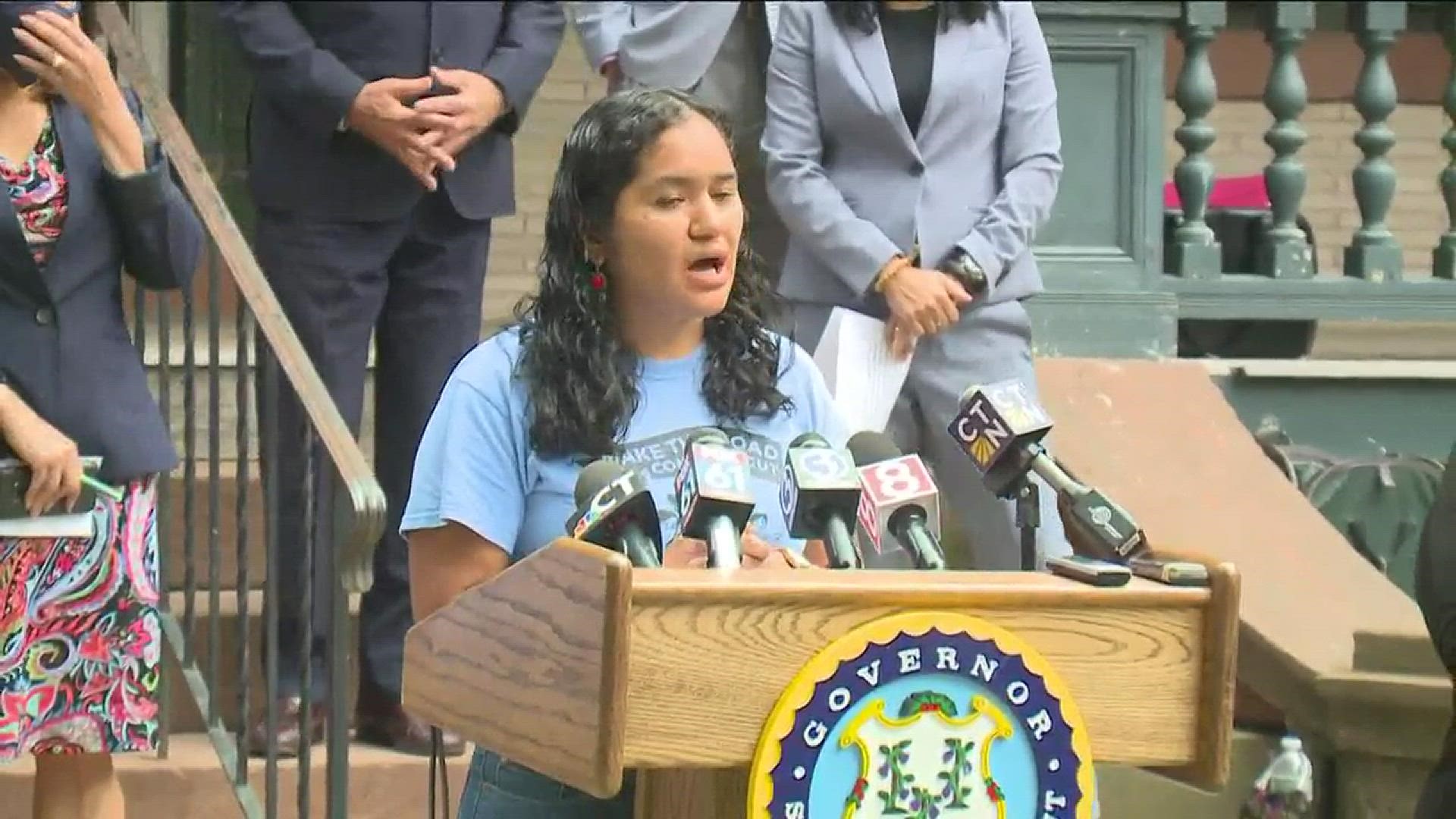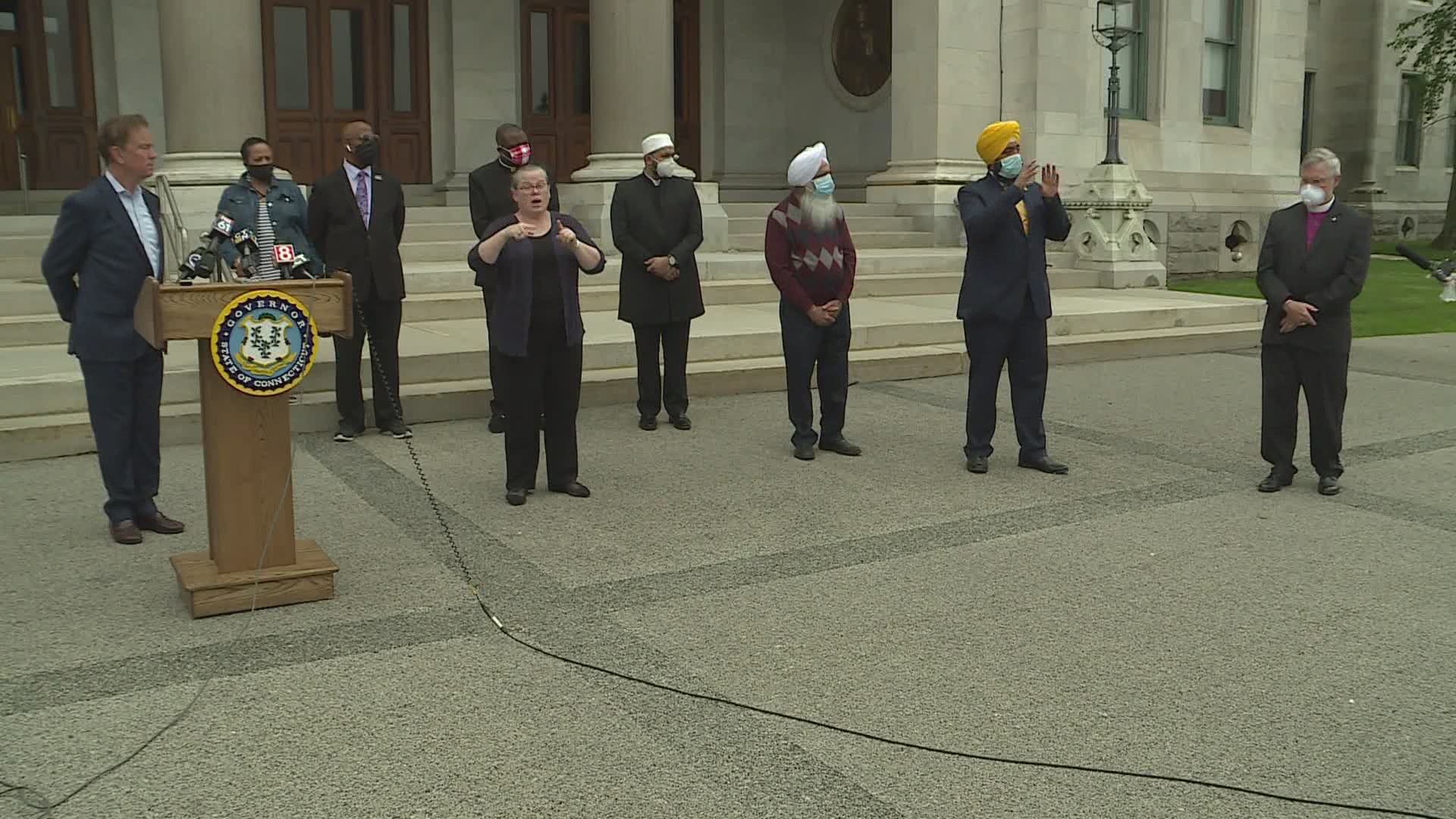HARTFORD, Conn — Governor Lamont and 4-CT announced today emergency COVID-19 relief who are ineligible for other forms of emergency assistance.
In order to provide some relief to the families, the state will provide $2.5 million in rental assistance for those who are ineligible for emergency assistance through the federal CARES Act, including those who are undocumented. The Department of Housing will administer this program which is still currently in development.
Additionally, 4-CT, a philanthropic entity created with the express purpose of providing emergency assistance during the COVID crisis, has created the 4-CT Card. It will provide $1 million for direct one-time payments to Connecticut families excluded from existing federal relief programs.
In addition, the Connecticut Health Foundation will donate an unspecified amount to support this direct-aid initiative.
Learn more about the program here.
The program will engage trusted community-based organizations as partners that will write “prescriptions” for cash assistance.
Recipients will take these prescriptions to community health centers partnering with the program for validation where they will receive gift cards to help pay for expenses like food and clothing.
Governor Lamont said about the endeavor, “The COVID crisis has taken a toll on many Connecticut families, none more so than those who are most vulnerable. I’m pleased to say that, together with 4-CT and other partners in philanthropy, we will be able to provide much-needed assistance to Connecticut residents who are unable to access federal emergency supports. To these residents of Connecticut, I want you to know this: You are not forgotten.”
Ted Yang, Co-founder and Chief Executive Officer of 4-CT said, “4-CT is pleased to provide this support to those most impacted by the COVID crisis. We hope, through this program, to offer a bridge from crisis to a more stable footing. I ask other funders to partner with us to expand this program to other vulnerable populations, such as the families of essential workers, to help your fellow Connecticut residents in need.”
“The purpose of the CARES Act is to help the most vulnerable members of our society during this difficult time,” Governor Lamont said. “It is an absolute outrage that the federal government is denying these families and their children the support they are entitled to as U.S. citizens. We call on the federal government to treat equally and fairly all American citizens with regard to these emergency benefits.”
Interested donors can visit 4-ct.org to learn more and to make a contribution to 4-CT.
The state is now two weeks into phase 1 of reopening with an eye on June 20th for phase 2.
As of Tuesday, there have been eight new COVID-19 related deaths, 239 more positive cases, and the number of hospitalizations dropped by 20. About 434 people now are being treated in the hospital for COVID-19.
Yesterday, Gov. Lamont signed his 49th executive order. The order modifies the number of children that a child care program can have during the COVID-19 public health emergency from 30 to 50 without needing to obtain approval from the Office of Early Childhood.
Any facility caring for more than 50 children will need to obtain approval.
Gov. Lamont also announced Tuesday that the state has been approved by FEMA to provide crisis counseling to those who have been impacted by COVID-19.
This program will be administered by the Connecticut Department of Mental Health and Addiction Services in cooperation with the Department of Emergency Services and Public Protection. A federal grant of $669,404 will be utilized by the state to provide the following services:
- Crisis counseling to homeless people who are in shelters, hotels, and in the community, as well as staff in those facilities.
- Crisis counseling to senior citizens in congregate care settings and the community
- Enhancement of crisis counseling call-line services provided through United Way 211.
The Connecticut Department of Social Services announced Tuesday that it will provide $16.3 million in emergency Supplemental Nutrition Assistance Program (SNAP) benefits to nearly half of Connecticut’s SNAP participants on Friday, June 12, 2020. This is in addition to the $50.2 million in emergency benefits that were distributed in April and May.
All households enrolled in SNAP will receive the maximum food benefit allowable for their household size, even if they are not usually eligible for the maximum benefit.
- The Department of Social Services expects that more than 108,000 of the 222,000 households enrolled in SNAP in Connecticut will receive the emergency benefits in June.
- The average emergency benefit amount a household will see on its electronic benefits transfer (EBT) card on June 12 is $150.
- All participating households will also receive their normal SNAP benefits on the first three days of each month as they normally do, according to last name.
For the most up-to-date information from the State of Connecticut on COVID-19, including an FAQ and other guidance and resources, residents are encouraged to visit ct.gov/coronavirus.


